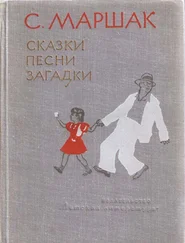She interrupted him with an impatient gesture.
"You misunderstand me," she said. "That is not why I am anxious. I am anxious because of something I have just learnt about Percy. I am afraid he is going to be—"
"Troublesome?" suggested Lord Blight.
She nodded.
"I have learnt to–day," she explained, "that he has a horror of high places."
"You mean that on the cliffs of, as it might be, Bridlington some sudden unbridled terror may cause him to hurl himself—"
"You will never get him to the cliffs of Bridlington. He can't even look out of a first–floor window. He won't walk up the gentlest slope. That is why he is always playing with the lawn–mower."
The Earl frowned and tapped on his desk with a penholder.
"This is very grave news, Gertie," he said. "How is it that the boy comes to have this unmanly weakness?"
"It seems he has always had it."
"He should have been taken in hand. Even now perhaps it is not too late. It is our duty to wean him from these womanish apprehensions."
"Too late. Unless you carried him up there in a sack—?"
"No, no," protested the Earl vigorously. "My dear, the seventeenth Earl of Blight carrying a sack! Impossible!"
For a little while there was silence while they brooded over the tragic news.
"Perhaps," said the Countess at last, "there are other ways. It may be that Percy is fond of fishing."
Lord Blight shifted uncomfortably in his seat. When he spoke it was with a curiously apologetic air.
"I am afraid, my dear," he said, "that you will think me foolish. No doubt I am. You must put it down to the artistic temperament. But I tell you quite candidly that it is as impossible for me to lose Percy in a boating accident as it would be for—shall I say?—Sargent to appear as 'Hamlet' or a violinist to wish to exhibit at the Royal Academy. One has one's art, one's medium of expression. It is at the top of the high cliff with an open view of the sea that I express myself best. Also," he added with some heat, "I feel strongly that what was good enough for Percy's father, ten brothers, three half–brothers, not to mention his cousin, should be good enough for Percy."
The Countess of Blight moved sadly from the room.
"Well," she said as she stopped for a moment at the door, "we must hope for the best. Perhaps Percy will overcome this aversion in time. You might talk seriously to him to–morrow about it."
"To–morrow," said the Earl, referring once more to his diary, "Basil and I are visiting the romantic scarps of Filey."
On the day following the unfortunate accident at Filey the Earl and Countess of Blight reclined together upon the cliffs of Bridlington.
"If we only had had Percy here!" sighed the Earl.
"It was something to have got him as far as the beach," said the Countess hopefully. "Perhaps in time—a little higher every day—"
The Earl sighed again.
"The need for self–expression comes strongly upon the artist at a time like this," he said. "It is not for me to say that I have genius—"
"It is for me to say it, dear," said his wife.
"Well, well, perhaps in my own line. And at the full height of one's powers to be baulked by the morbidity, for I can call it nothing else, of a Percy Podby! Gertie," he went on dreamily, "I wish I could make you understand something of the fascination which an artist finds in his medium. To be lying here, at the top of the world, with the lazy sea crawling beneath us so many feet below—"
"Look," said the Countess suddenly. She pointed to the beach.
The Earl rose, stretched his head over the edge and gazed down.
"Percy," he said.
"Yes. Almost exactly beneath us."
"If anything fell upon him from here," said the Earl thoughtfully, "it is quite possible that—"
Suddenly the fascination whereof he had spoken to her came irresistibly home to the Countess.
"Yes," she said, as if in a trance, "if anything fell upon him from here—" and she gave her husband a thoughtful push—"it—is—quite—possible—that—"
At the word "that" the Earl reached Percy, and simultaneously the title expired.
Poor Blight!—or perhaps, since the title was never really his, we should say "Poor Blighter!" It is difficult to withhold our sympathy from him.
High Jinks at Happy-thought Hall
[ An inevitable article in any decent magazine at Christmas–time. Read it carefully, and then have an uproarious time in your own little house .]
It was a merry party assembled at Happy–Thought Hall for Christmas. The Squire liked company, and the friends whom he had asked down for the festive season had all stayed at Happy–Thought Hall before, and were therefore well acquainted with each other. No wonder, then, that the wit flowed fast and furious, and that the guests all agreed afterwards that they had never spent such a jolly Christmas, and that the best of all possible hosts was Squire Tregarthen!
First we must introduce some of the Squire's guests to our readers. The Reverend Arthur Manley, a clever young clergyman with a taste for gardening, was talking in one corner to Miss Phipps, a pretty girl of some twenty summers. Captain Bolsover, a smart cavalry officer, together with Professor and Mrs. Smith–Smythe from Oxford, formed a small party in another corner. Handsome Jack Ellison was, as usual, in deep conversation with the beautiful Miss Holden, who, it was agreed among the ladies of the party, was not altogether indifferent to his fine figure and remarkable prospects. There were other guests, but as they chiefly played the part of audience in the events which followed their names will not be of any special interest to our readers. Suffice it to say that they were all intelligent, well–dressed, and ready for any sort of fun.
( Now, thank heaven, we can begin .)
A burst of laughter from Captain Bolsover attracted general attention, and everybody turned in his direction.
"By Jove, Professor, that's good," he said, as he slapped his knee; "you must tell the others that."
"It was just a little incident that happened to me to–day as I was coming down here," said the Professor, as he beamed round on the company. "I happened to be rather late for my train, and as I bought my ticket I asked the clerk what time it was. He replied, 'If it takes six seconds for a clock to strike six, how long will it take to strike twelve?' I said twelve seconds, but it seems I was wrong."
The others all said twelve seconds too, but they were all wrong. Can you guess the right answer?
When the laughter had died down, the Reverend Arthur Manley said:
"That reminds me of an amusing experience which occurred to my housekeeper last Friday. She was ordering a little fish for my lunch, and the fishmonger, when asked the price of herrings, replied, 'Three ha'pence for one and a half,' to which my housekeeper said, 'Then I will have twelve.' How much did she pay?" He smiled happily at the company.
"One—and—sixpence, of course," said Miss Phipps.
"No, no; ninepence," cried the Squire with a hearty laugh.
Captain Bolsover made it come to £l 3s. 2–1/2d., and the Professor thought fourpence. But once again they were all wrong. What do you make it come to?
It was now Captain Bolsover's turn for an amusing puzzle, and the others turned eagerly towards him.
"What was that one about a door?" said the Squire. "You were telling me when we were out shooting yesterday, Bolsover."
Captain Bolsover looked surprised.
"Ah, no, it was young Reggie Worlock," said the Squire with a hearty laugh.
"Oh, do tell us, Squire," said everybody.
"It was just a little riddle, my dear," said the Squire to Miss Phipps, always a favourite of his. "When is a door not a door?"
Читать дальше












